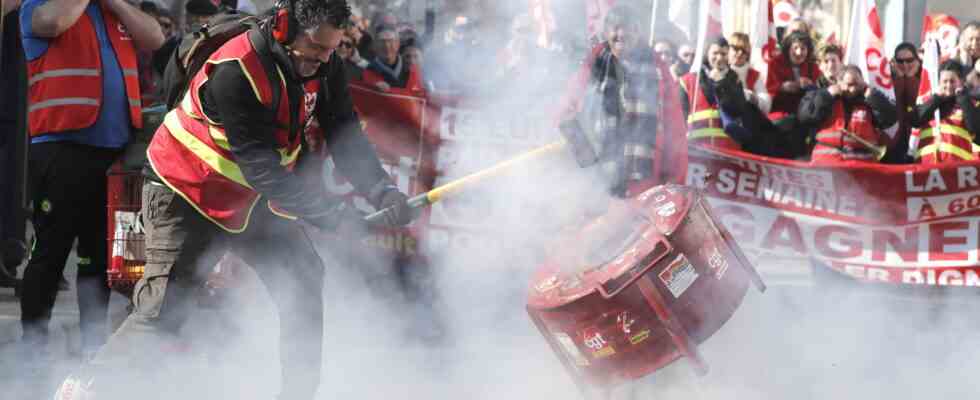background
Status: 01/31/2023 5:46 p.m
France strikes and strikes – again. There are historical reasons for what causes astonishment in Germany. Because the right to strike has a special status in France.
Rémi Bourguignon has to smile when asked to explain why there are so many and almost passionate strikes in France. Bourguignon is a professor at the University of Paris-Est-Créteil and a specialist in social movements and trade unions.
Caroline Dylla
ARD Studio Paris
There is a historical peculiarity in France, explains Bourguignon: the right to strike was guaranteed 20 years before the legal recognition of trade unions. “The right to strike came first, then the unions. In our culture, conflict comes first – and then negotiations,” explains the professor
Even civil servants can go on strike
The right to strike has existed in France since the mid-19th century. Shortly after the end of the Second World War, it was even included in the preamble of the then constitution and has constitutional status to this day.
In France, anyone can go on strike. With a few exceptions – such as the police and military – even civil servants can go on strike. Many people in France are surprised that civil servants in Germany are not allowed to go on strike. Among others, Catherine da Silva. She is a teacher and was present at the national strike and action day on January 19th.
“I’m very surprised to hear that. We’re civil servants who are supposed to teach children to live their civil rights,” says da Silva. She finds it surprising that her German colleagues do not have these civil rights.
Differences to the German right to strike
In France, if at least two workers stop working to jointly enforce claims against the employer, this is considered a strike. In Germany, on the other hand, only unions are allowed to call for strikes.
In addition, strikes in Germany are only permitted when it comes to demands that can be regulated within the framework of a collective agreement. The so-called peace obligation also applies for the duration of a collective agreement. After the end of the collective agreement, the social partners first have to negotiate before there can even be talk of industrial action.
Related to work or politics?
In France, too, the demands of the strikers must have something to do with their work, i.e. pay, working conditions or job protection. Purely political strikes are banned – and that complicates things right now.
With the current strikes, the employers are bearing the financial burden, although the strikers are concerned with the political pension reform – with which the employers have nothing to do, says Bourguignon.
In a sense, employers are the ones who suffer for something over which they have no direct control. Here we come up against the limits of the right to strike. And one can ask oneself how legitimate this strike is.
But one could also argue differently, Bourguignon points out, after all, France has a fairly open definition of a strike. At the moment it is clearly about work, that people should work longer – and that is a gray area.
Majority supports strikers
According to Professor Bourguignon, pension reform also raises a much larger, more general question: that of social justice. That is one of the reasons why the protests are so violent and why the unions are calling for them. At least currently.
The majority of French people still support the protests against retirement at 64. According to a survey commissioned by the television station BFMTV, 57 percent of those surveyed would even understand it if the protests largely paralyzed public life.
Right to strike – comparison Germany and France before new strike day
Carolin Dylla, ARD Paris, 31.1.2023 3:59 p.m

